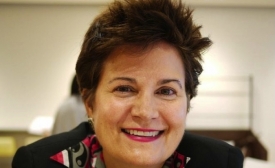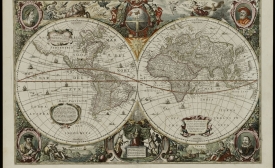china

A new position at Kyoto University, research on nation branding and propaganda, and an upcoming book on Japan’s struggle to “go global.”
Japan is set to build India's first bullet train, with Tokyo financing the project through an $8 billion loan to New Delhi [...] [The Nikkei said] that the two countries will issue a joint statement about the deal on Saturday during Prime Minister Shinzo Abe's visit to India [...]The report comes after Japan failed to win a high-speed train deal in Indonesia earlier this year, losing out to a Chinese proposal.
The former British Prime Minister Harold MacMillan once commented that the most difficult thing about politics was "events, dear boy, events." Events can be helpful or unhelpful coincidences for statesmen. [...] The West needs to engage seriously with Turkey.

Shaun Riordan's look at the state of geopolitics.
Beijing has sought to improve its public image through a soft-power strategy meant to show Zimbabweans that the dragon has a soft, charming underbelly. In 2006, China opened a Confucius Institute at the University of Zimbabwe to spearhead the teaching of Mandarin and the propagation of Chinese culture. Students are keen on mastering the language, seeing it as a passport to new horizons on the international job market.
China’s approach to winning friends around the world has long been characterised as cheque-book diplomacy, with big events overseas invariably accompanied by top-dollar deals. But President Xi Jinping’s ongoing visit to Africa seems to point to a shift, with China more concerned about politics than pure economics.
The University of Johannesburg is home to a centre that aims to build better relations between South Africa and China. According to the director of the Confucius Institute David Monyae, relations between the two countries are currently only conducted at a high level. The institute aims to boost relations “people to people”.
There are obviously concerns about the impact on Africa through a decrease in commodity exports (and income) to China. Yet such shifts also signal opportunity and perhaps changes in China's approach towards the continent, to include 'softer' issues - like closer public interaction…The 6th iteration of the Forum on China-Africa Cooperation (FOCAC) will be held this week in Johannesburg, South Africa.







